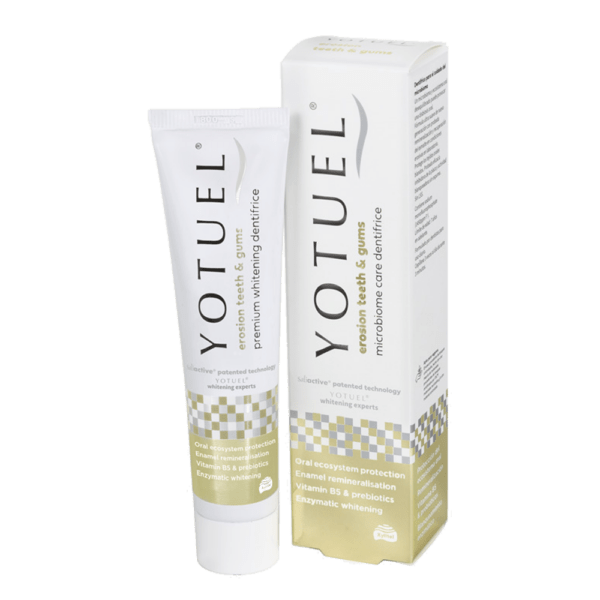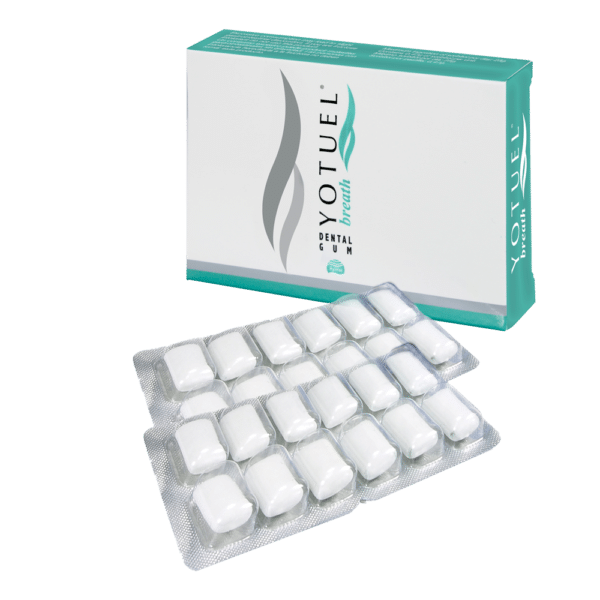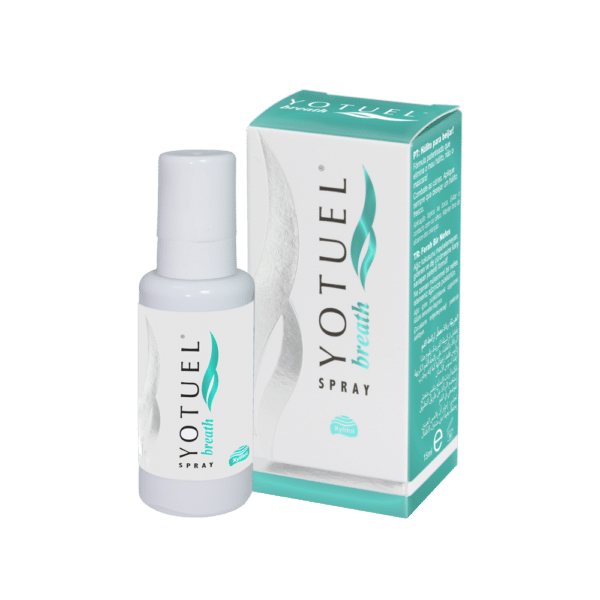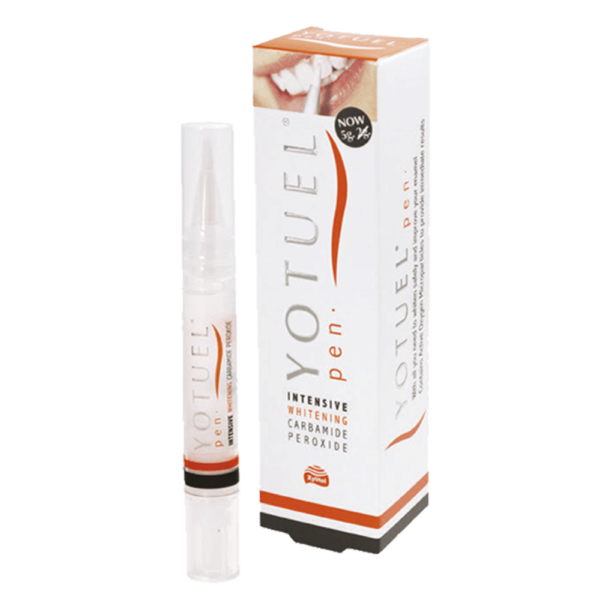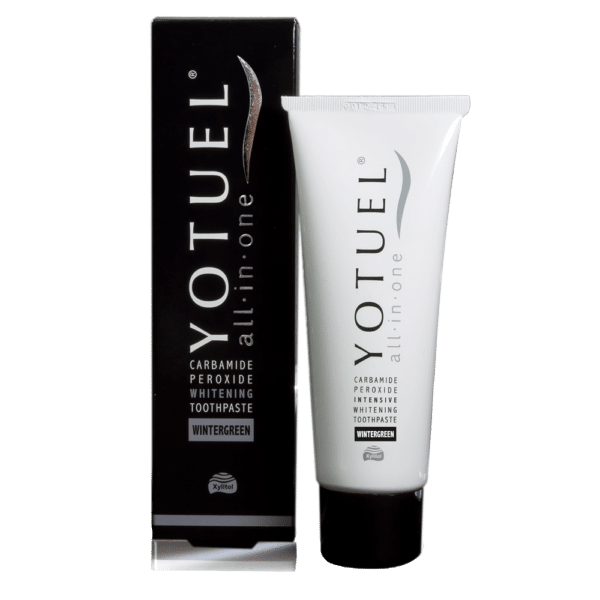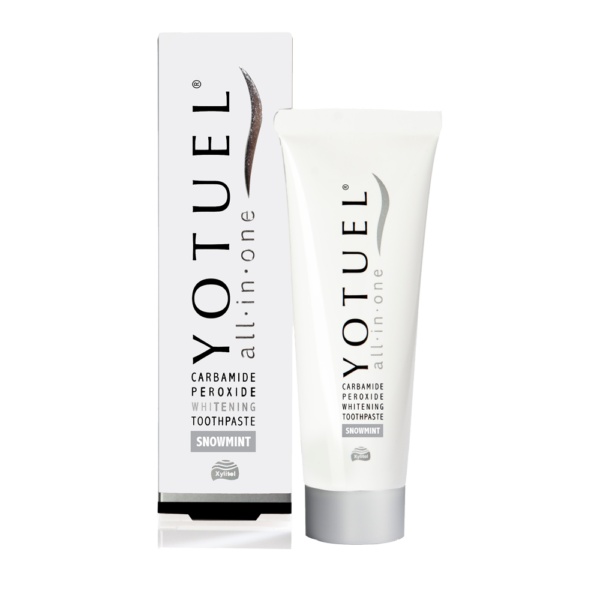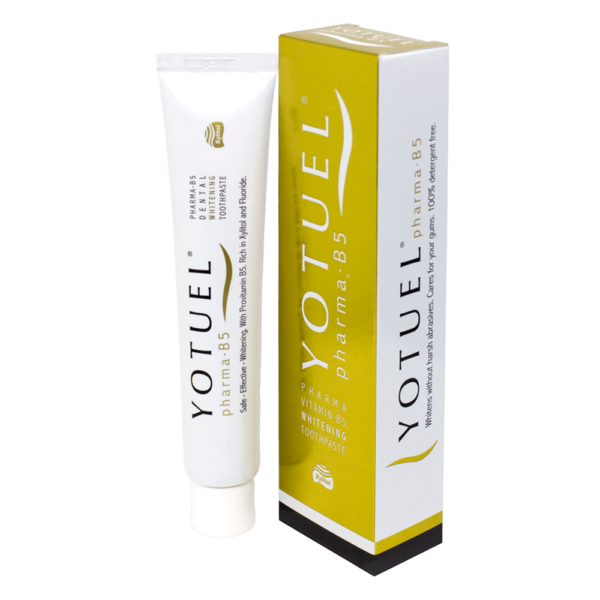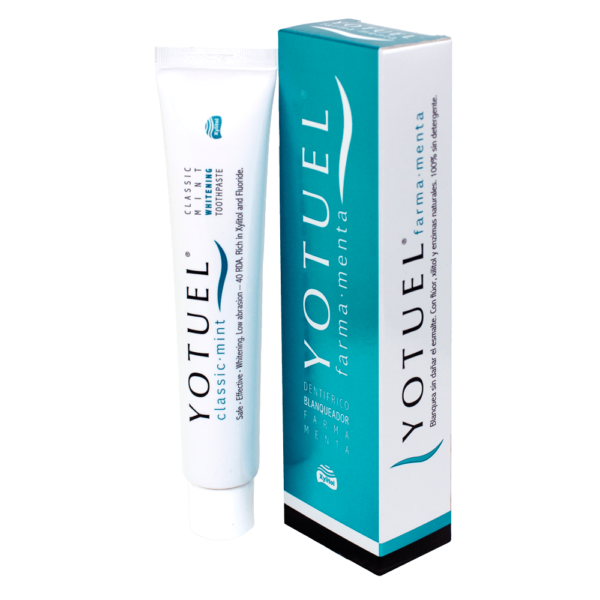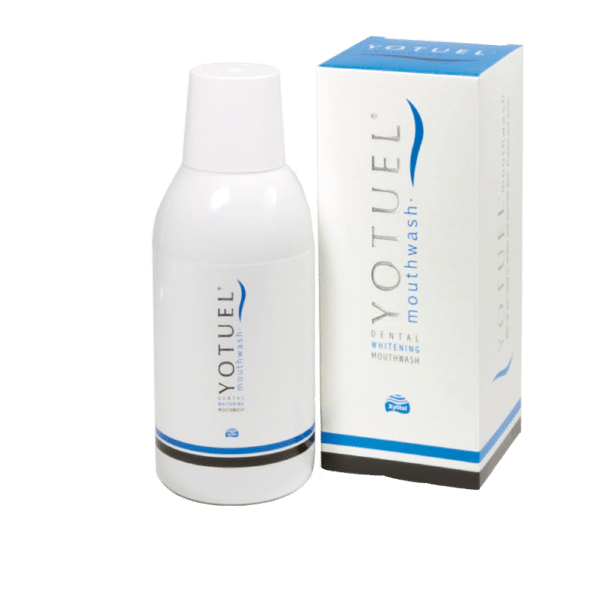Bad breath, also known as halitosis, is a common condition that can affect our confidence, our personal relationships, and even our professional life.
It’s a nuisance that we sometimes notice in others, but can be difficult to notice in ourselves.
Fortunately, by better understanding what causes it and how to combat it, we can find effective solutions to maintain fresh, pleasant breath.
Below, we’ll explore in depth the causes of bad breath, the products and habits that help combat it, the role of the oral microbiome, and some diseases that may be related to this condition.
Table of contents
The role of the oral microbiome in bad breath
Diseases that cause bad breath
What causes bad breath?
Bad breath can be caused by multiple factors, some as simple as eating certain foods and others more complex, such as underlying health conditions. Here we will analyze the main reasons behind this condition:
- Bacteria in the mouth: Our mouth is home to millions of bacteria that, when breaking down food debris, produce sulphur compounds responsible for bad breath.
- Food and drink: Foods high in sulphur compounds, such as garlic and onions, can cause bad breath, as can drinks such as coffee and alcohol.
- Poor oral hygiene: Not brushing or flossing regularly allows plaque and food debris to build up, causing bad breath.
- Smoking and tobacco use: These products not only leave a characteristic bad smell, but they dry out the mouth and alter the oral microbiome, promoting halitosis.
- Health conditions: Medical problems such as sinusitis, tonsil infections, gastroesophageal reflux, and liver or kidney disease can also contribute to bad breath.
For a more detailed explanation, we recommend reading The Role of the Oral Microbiome in Bad Breath.
How to combat bad breath: effective habits and products
Once we have identified the causes, it is time to see how we can combat bad breath. There are multiple strategies and products that can help us keep our mouth fresh. Here we share some practical methods and recommended products to eliminate bad breath:
- Maintain good oral hygiene: Brush your teeth and tongue at least twice a day, and use dental floss to remove food debris.
- Antibacterial mouthwashes: Some mouthwashes are formulated to eliminate odour-causing bacteria. Look for those that do not contain alcohol, as this can dry out the mouth.
- Sugar-free lozenges and gums: These products stimulate saliva production and help reduce bad breath.
- Natural products: Essential oils, such as peppermint oil or tea tree oil, can be used in mouthwashes for fresher breath.
To learn more about specific products and how to use them, check out our related article: How to combat bad breath: effective products for fresh breath.
How to fight bad breath: effective products for fresh breath
The role of the oral microbiome in bad breath
The oral microbiome is the set of microorganisms that inhabit our mouths. Although some bacteria are beneficial, others can contribute to bad breath. By altering the balance of these microorganisms, for example, with a high-sugar diet or excessive use of antibiotics, bad breath can intensify.
- Sulphur-producing bacteria: These bacteria thrive in places with little oxygen, such as the back of the tongue, and generate odour-causing compounds.
- Xerostomia or dry mouth: Lack of saliva reduces our mouth’s ability to fight bacteria, which can result in bad breath.
- Oral probiotics: Just like in the gut, probiotics can help restore balance to the oral microbiome, reducing odour-causing bacteria.
For a more detailed explanation, we recommend reading The role of the oral microbiome in bad breath.
Diseases that cause bad breath
Bad breath is not always caused only by what we eat or how we care for our mouth; in some cases, it is a symptom of underlying medical conditions.
It is important to be informed about these diseases, as treating the root cause may be the key to eliminating halitosis.
- Sinusitis and other respiratory infections: The accumulation of bacteria in the respiratory tract can affect breath.
- Periodontal disease: Infected or inflamed gums produce a characteristic bad odour.
- Gastroesophageal reflux: Stomach acid can return to the mouth, generating a bad odour.
- Diabetes and liver or kidney diseases: These conditions can change the smell of breath, as they affect the metabolism and detoxification of the body.
To learn more: What causes bad breath and how to combat It?
How to get rid of bad breath: practical steps for fresh breath
Finally, if you’re already dealing with bad breath and are looking for practical ways to get rid of it right away, here are some effective tips:
- Drink water regularly: Staying hydrated helps produce saliva and clean your mouth.
- Brush your tongue: Many odour-producing bacteria reside on your tongue, so brushing it can help.
- Limit certain foods: If you notice that certain foods make your bad breath worse, try cutting back on them.
- Visit your dentist regularly: Professional cleanings and checkups remove bacteria and prevent problems that can make bad breath worse.
- Oral hygiene: Maintain a proper oral hygiene routine by brushing after meals and using the best oral care products.
To learn more: How to get rid of bad breath: practical tips to really combat it
How to get rid of bad breath: practical tips to really combat it
Frequently asked questions about bad breath
What foods cause bad breath the most?
Garlic, onions, coffee, and alcohol are the main culprits. Protein-rich foods and some cruciferous vegetables, such as broccoli, can also cause halitosis.
Is it possible to combat bad breath without chemicals?
Yes, you can try to maintain proper hydration, proper hygiene, and a balanced diet, all of which are key to improving your breath naturally.
How does the oral microbiome affect bad breath?
An unbalanced oral microbiome can promote the growth of bacteria that produce sulphur compounds, responsible for bad breath. Dry mouth and a diet high in sugar can affect this balance.
Is it normal to have bad breath in the morning?
Yes, it is normal. During the night, saliva production decreases, which facilitates the accumulation of bacteria. Brushing your tongue and drinking water when you wake up can help reduce this type of halitosis.
When should I worry about bad breath?
If you notice that bad breath persists despite maintaining good oral hygiene, it could be a symptom of an underlying health problem. In these cases, it is advisable to visit a dentist or doctor to assess the situation.
In conclusion, bad breath is a common condition that can affect our confidence and well-being. However, by understanding its causes, we can take effective measures to combat it.
From good oral hygiene using appropriate products such as mouthwash and toothpaste to addressing potential health problems, there are many ways to reduce and prevent halitosis.
Remember that bad breath is not a problem without a solution, and with small changes in our habits, we can enjoy fresh and pleasant breath.





